Some of the links on this blog may be affiliate links. This means that if you make a purchase through these links, we may earn a small commission at no additional cost to you. We are a participant in the Amazon Services LLC Associates Program, an affiliate advertasing program designed to provide a means for us to earn advertising fees by linking to Amazon.com and affiliate websites.
Are you going to a wedding and wondering how to choose between money and gifts? This question worries many wedding guests. In this article, we will offer you a practical wedding gift-giving etiquette guide to help you make this decision. This guide will also help you understand the role of registries, the growing preference for money, and how to determine an appropriate amount. We will prepare you to attend any wedding with confidence.
Table of Contents
Money or Gifts: How Do I Decide What to Give?
According to survey, money as a wedding gift has been gaining popularity in recent years, with 60% of respondents choosing to give money over traditional gifts.
How Much Money Should You Give As a Wedding Gift?
Wedding gift-giving etiquette varies depending on the generation. Millennials (born 1981-1996) and Gen Z (born 1997-2012) are reshaping wedding gift-giving norms. A report from Empower reveals that Gen Z spends an average of $275 on wedding gifts, which is significantly more than Baby Boomers (born 1946-1964), who typically spend only $98.
On the other hand, Millennials and Gen X (born 1965-1980) fall in between, spending $238 and $149, respectively. This generational gap in wedding gift etiquette may be explained by old habits and inflation.
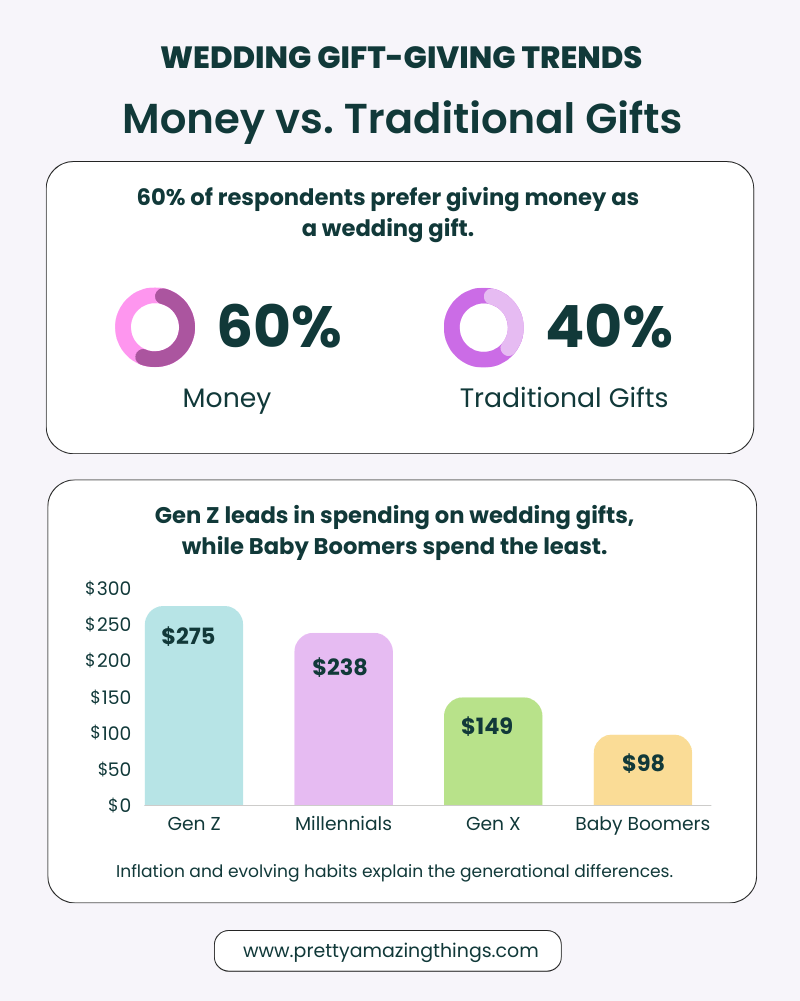
Experts suggest that Gen Z views wedding gifts as an integral part of the wedding experience, leading them to spend more generously. Millennials, often juggling financial responsibilities like student loans and homeownership, tend to favor cash gifts or contributions to experiences, such as honeymoon funds. If they do give gifts, they tend to prioritize sustainability, opting for eco-friendly or practical wedding presents over traditional household items.
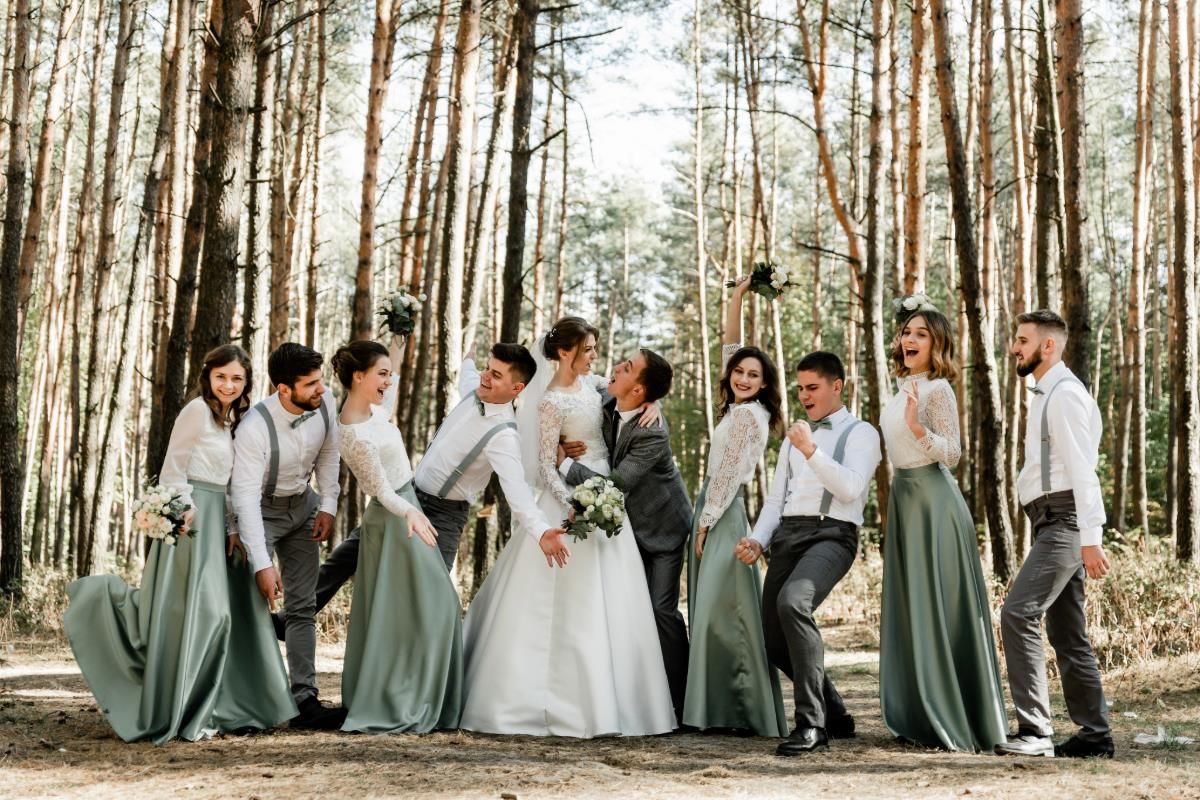
Etiquette for Monetary Wedding Gifts
Is it OK to give money as a wedding present?
Yes, it’s perfectly acceptable. In fact, nowadays many couples prefer monetary gifts because they offer flexibility for expenses like honeymoons, home purchases, or other priorities. If you’re not sure, check the couple’s wedding website or registry for guidance—some couples may even have a honeymoon fund or cash fund set up. To make it more personal, pair your monetary gift with a heartfelt note.
Wedding Registry: Should I Stick to the List?
Wedding registries have evolved significantly from their traditional origins. Once filled with household essentials to help couples start their new life together, registries now include options like honeymoon funds, charity donations, or even experience-based gifts. While checking the couple’s registry is always a good starting point, you’re not obligated to stick to it. A thoughtful, personalized gift or a financial contribution is equally appreciated, as long as it aligns with the couple’s preferences.
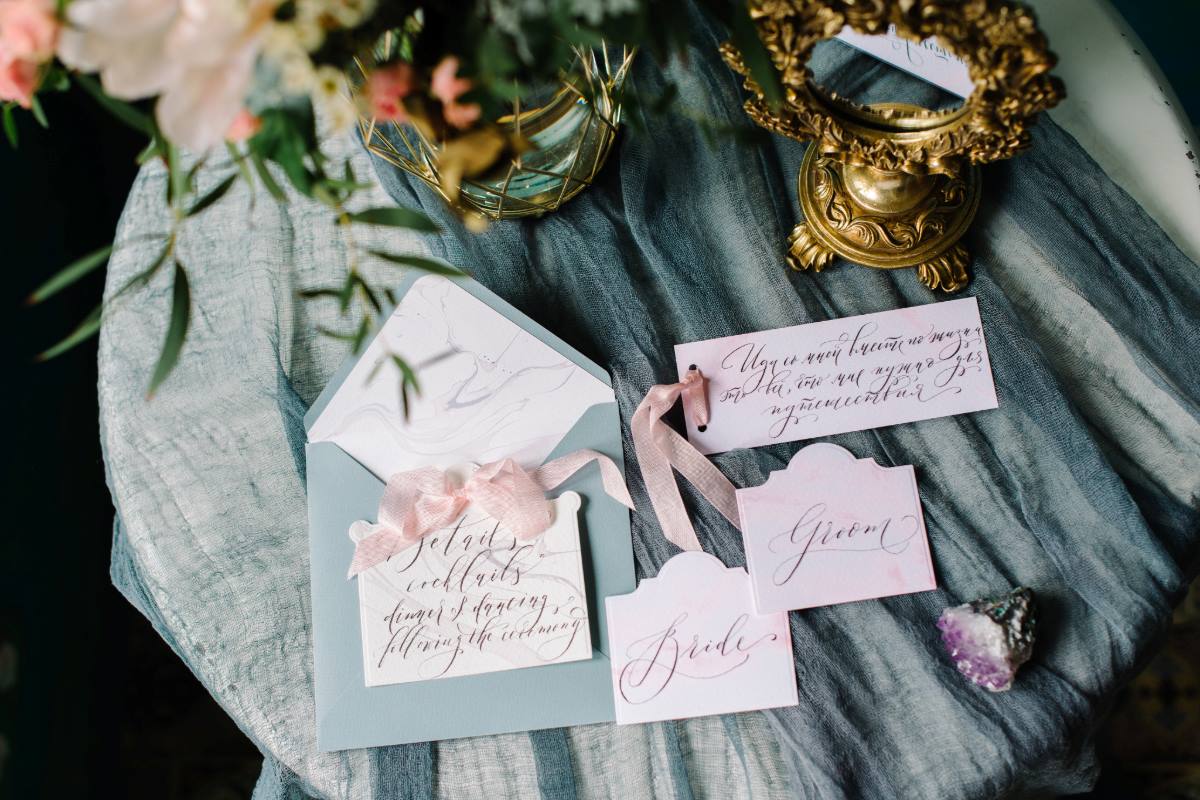
In Which Countries I Can Expect There to be a Registry?
Wedding registries are particularly popular in countries like the United States, Canada, and the U.K. Married couples see them as a practical way to communicate their needs and preferences. In most European countries, like Italy, France, and Poland, a wedding registry is not a common practice. In most European countries, couples often favor money, as they view it as a flexible and useful wedding gift.
How Much Should You Spend on a Wedding Gift in 2025?
We have all felt the impact of rising prices for products and services. Inflation and the rising cost of living have directly impacted wedding budgets and gift-giving traditions all over the world, and as a result of that, this question has taken on even greater significance in recent years.
According to the survey, the average cost of physical wedding gifts in 2023 ranged from $50 to $200, with popular choices including kitchen appliances, home décor, and personalized keepsakes.
However, inflation and the growing preference for higher-quality gifts have driven the spending average. Most guests now set their budget between $100 and $500, depending on their relationship with the couple.

Wedding Gifts Expectations in Different Cultures
In some cultures, the wedding gift-giving etiquette specifies covering guests “cost per plate” at the wedding and contributing something extra.
- This practice is particularly common in countries like Italy, France, Greece, and Poland, where monetary wedding gifts are often a great idea. People view giving money as a practical way to help the couple offset wedding expenses and start their new life together.
- In India, cash gifts are common, especially at the wedding reception. Money is often given in amounts ending in “one” (like ₹501 or ₹1,001) for good luck.
- In Japan, guests give monetary gifts called Goshugi in decorative envelopes (shugi-bukuro). If you attend a wedding in Japan, remember to only give odd-numbered amounts of money because even numbers symbolize separation.
- In the United Arab Emirates (UAE) and Saudi Arabia, guests typically give money in elegant envelopes. Close family members typically gift gold jewelry, which symbolizes lasting prosperity.
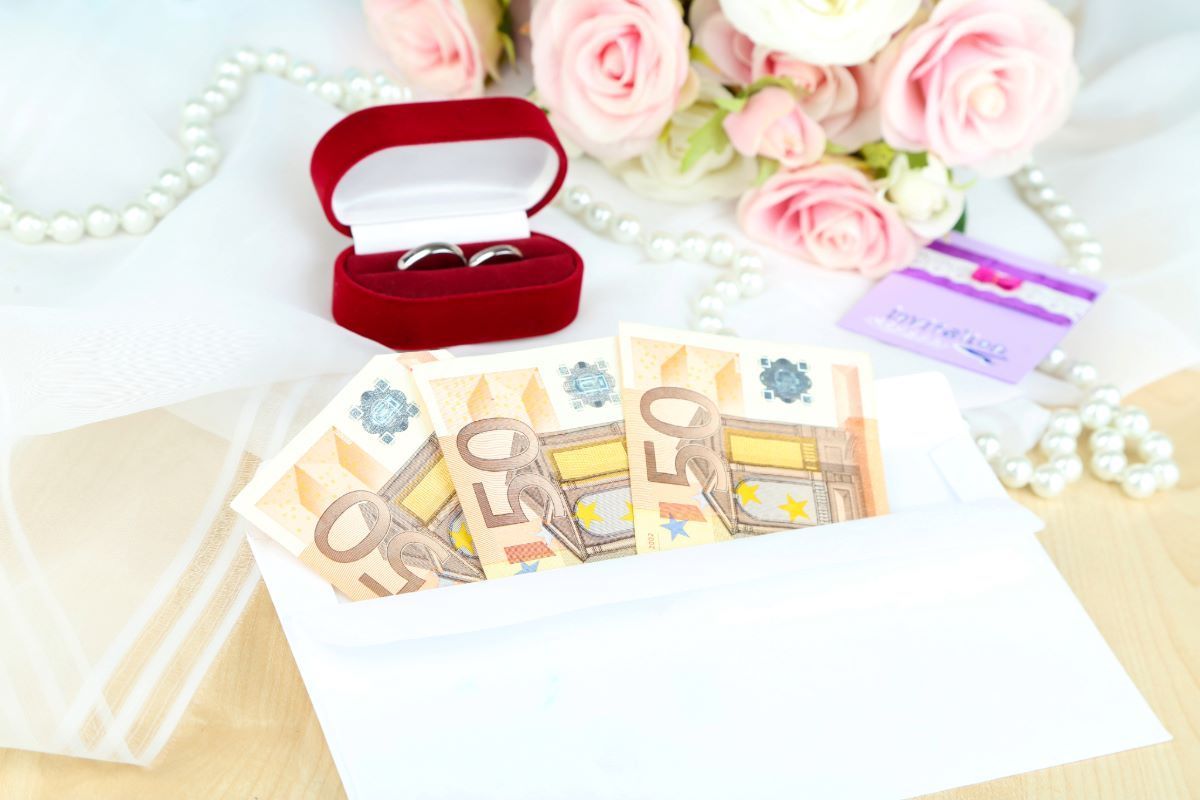
There is no universal rule telling us how much money to give on a wedding gift, but a few factors can help guide your decision:
- How close are you? Bestie, close family? It's better to be more generous with the cash. Distant relatives or acquaintances? You should feel comfortable giving less cash.
- Type and Scale of the Celebration—Is it a fancy wedding? Maybe you should put a bit more in your envelope. Chill backyard BBQ? There’s less pressure to give a larger amount. A large, lavish, all-night wedding usually requires a more generous gift compared to a small, intimate reception.
- Is the marrying couple providing amenities?—Free hotel and transportation? If the couple is covering some of your costs, consider giving more money compared to weddings where you don’t have to travel.
- Can you afford it?–Give what you can comfortably afford. Definitely don’t go broke for a wedding. Your presence is usually more important than the price tag of your gift.
So in short, if you’re unsure how much to give, consider key factors like the size and formality of the wedding, your financial situation, the couple’s preferences, and of course, the local wedding gift-giving etiquette.
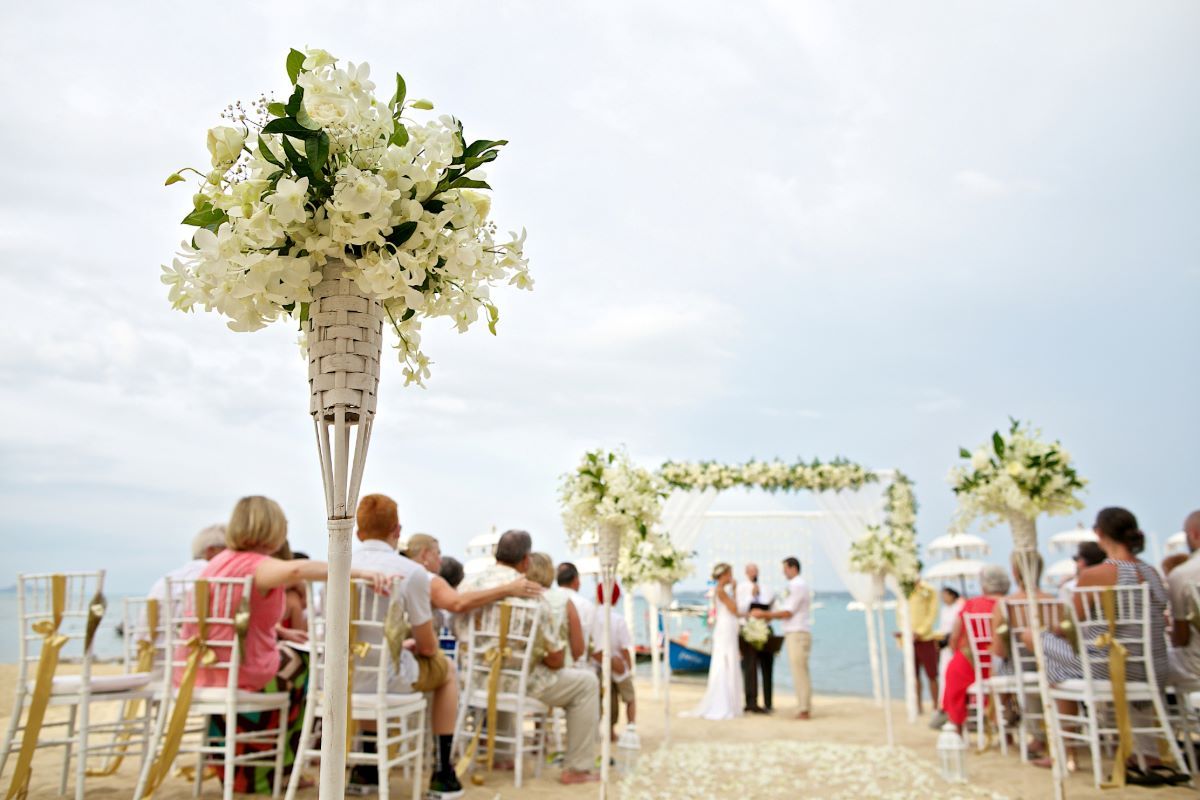
How About Offering Gifts at a Destination Wedding?
Attending a destination wedding can be a wonderful experience, but it also raises questions about wedding gift-giving etiquette.
Travel Expenses Covered by Guests
First off, you must recognize the significant financial commitment you’re making: just getting to a destination wedding is a gift in itself. Travel, accommodation, and time away from work all contribute to making it expensive to attend. The happy couple likely appreciates your effort to be present. In fact, if you’ve already covered the costs of traveling to the wedding, many couples consider your presence and effort to be the ultimate gift.
Promotional gifts are not a good choice for a long-term client. They will undermine your intentions, and the focus will be more on your company rather than on the recipient. A gift should feel special, not just like another logo-covered item. If you give a gift careful consideration, people will remember it for the right reasons.
Travel Expenses Covered by the Bride and Groom
However, if the couple has generously covered your travel or accommodation expenses, you should offer a gift as a thoughtful gesture to show your appreciation. Consider giving a smaller, heartfelt gift or a contribution toward their honeymoon fund. Given travel logistics, avoid large or heavy gifts. If you’re unsure, it’s always OK to ask the couple directly or check their wedding website for guidance.
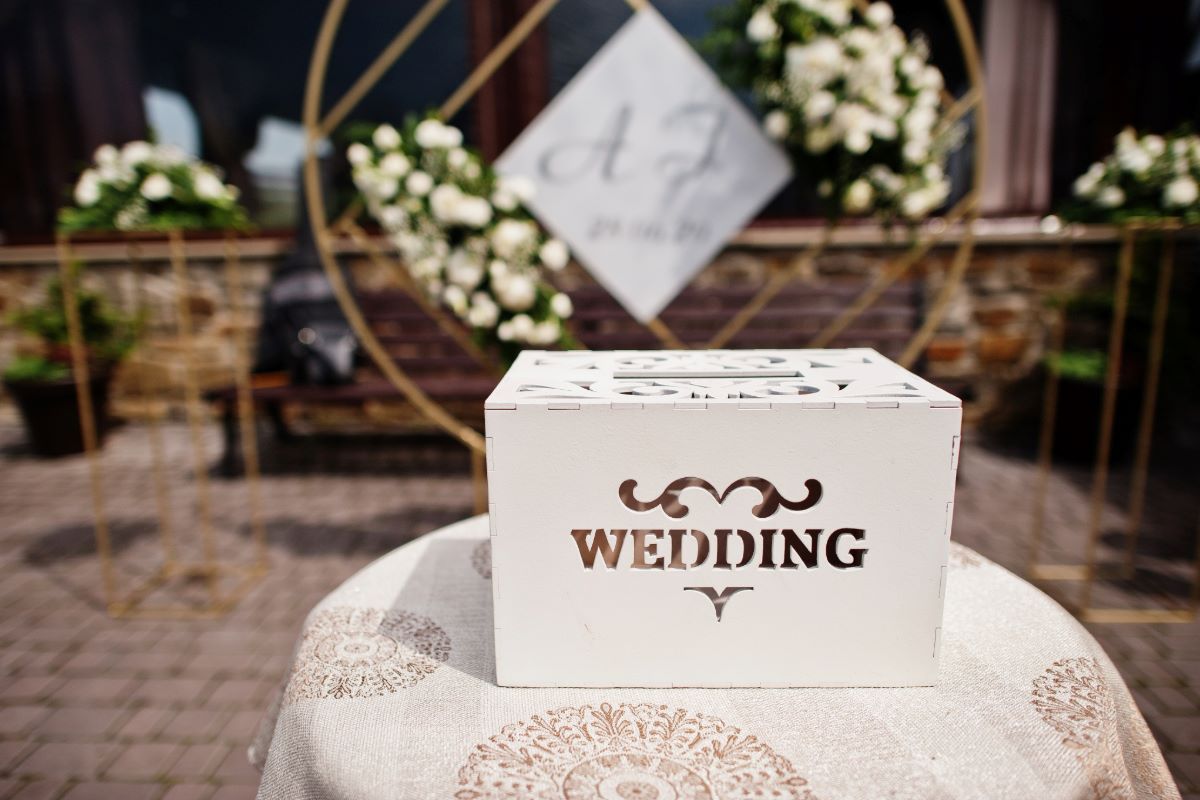
When Exactly Should You Offer a Wedding Gift?
In wedding gift-giving etiquette, the presentation and timing of a wedding gift is often just as important as the gift itself. It is customary to offer a wedding present either before or during the wedding reception. If you’re bringing a physical gift, it’s best to present it upon arrival. There is often a designated gift table set-up by the couple. It’s a simple way to keep your gift safe and avoid any last-minute stress.
For monetary wedding gifts, the go-to move is to place the money in an attractive envelope and include a signed card to personalize it and to share your best wishes. This gives the gesture a more personal touch and helps it to add to the sentiment. If you are unable to attend the wedding in-person, you show that you care by sending a check or more commonly, by using e-transfers. In fact, many couples specify digital payment options on their wedding website.
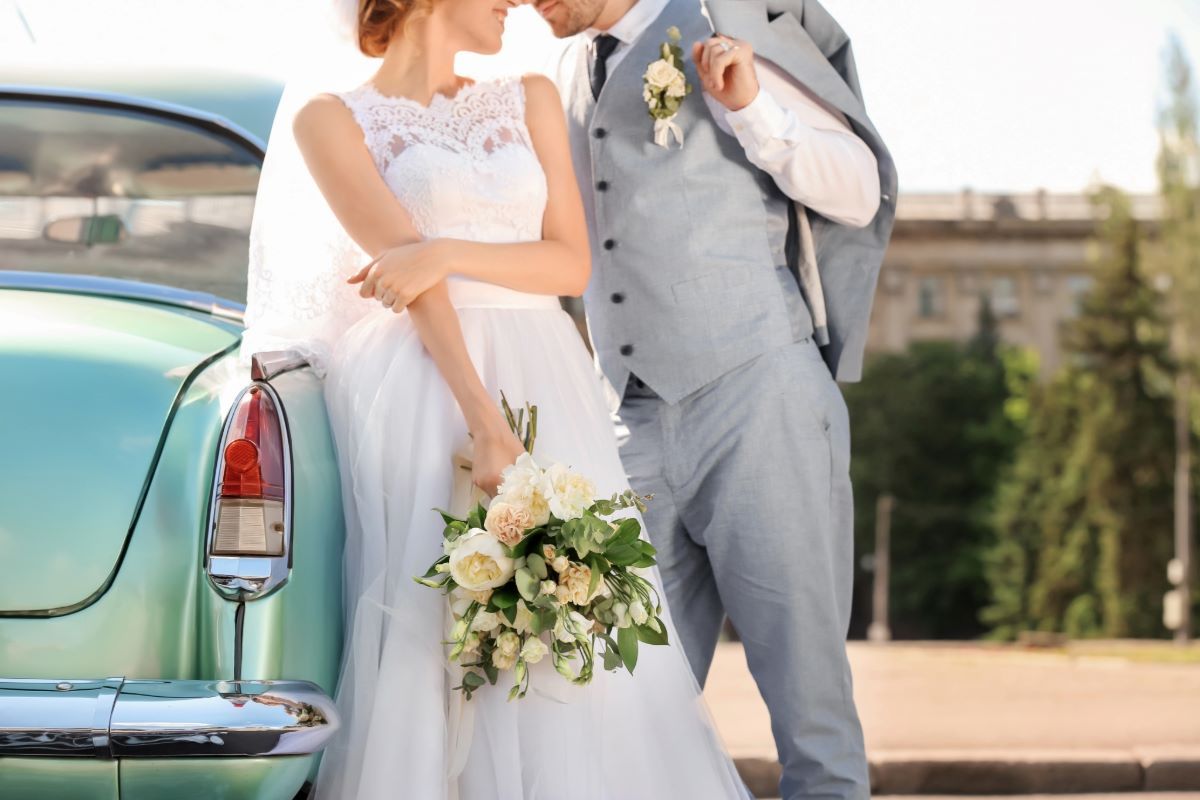
What About Weddings Without a Reception?
In recent years, there has been a trend towards more intimate or budget-friendly ways for couples to celebrate their wedding. Marrying couples may only invite guests for a casual lunch, a small dinner, or a gathering with close family and friends. This trend raises the question: How does wedding gift-giving etiquette change when there’s no traditional wedding reception?
A wedding without a reception often signifies a desire for a more personal and low-key celebration. This also suggests that the couple expects there will be a reduced emphasis on elaborate gifts. This doesn’t mean you should come empty-handed, but it does mean you should focus on gift quality and sentiment.
Wedding Gift Ideas
A thoughtful gesture, a symbolic present, such as a bottle of wine or even a gift card, is often more than enough. For example, at a wedding without a reception, you could give a beautifully wrapped, carefully selected book or a piece of art. A voucher for a romantic dinner or something that reflects the couple’s shared interests adds a personal touch. However, if you are not sure, simply ask the couple directly or check their wedding website for guidance.
- Civil Ceremony: If it’s a simple civil ceremony, a smaller, more symbolic gift is definitely appropriate.
- Lunch or Small Gathering: For a lunch or small family celebration, you could opt for a thoughtful, personal gift that reflects your relationship with the couple.
- Destination Ceremony without Reception: If you are going to participate in a destination wedding with no reception, you can send a nice, thoughtful gift to the newlywed’s home after the wedding.
Thank-You Notes from the Newlyweds
Don’t expect an immediate expression of gratitude from the couple. Newlyweds are, obviously, often busy after their wedding. Be patient and don’t take it personally if you don’t receive a thank-you note for a while. Wedding etiquette typically suggests that the ideal period for sending thank-you notes is three months.
It’s a good idea to keep a record of the gifts you give, so if you don’t receive a thank-you note within a reasonable time, you can consider reaching out to the couple to ensure they received your gift. Of course, sometimes mail gets lost or things get overlooked in the post-wedding rush, but it is always best to confirm that your gift was received.













